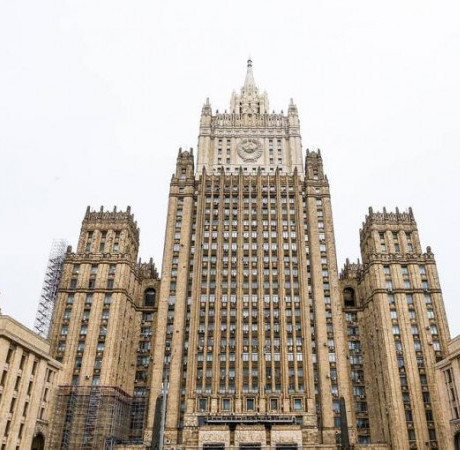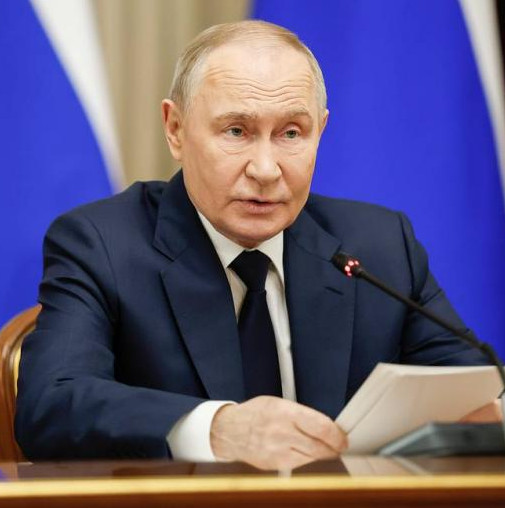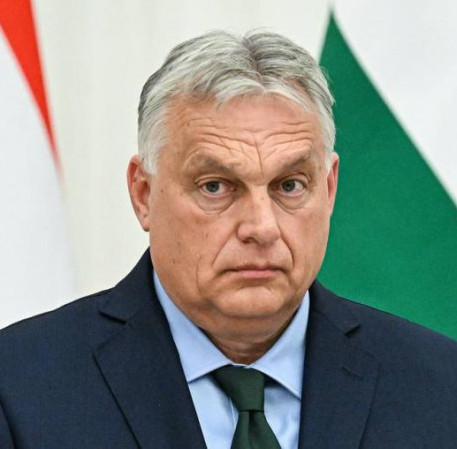The answer is given by a three-phase Georgian-Abkhaz reconciliation plan recently initiated by Germany. It is not incidentally that this plan was initiated by Berlin, which has special relations with Moscow and acts on behalf of a so-called “group of friends of the UN Secretary General”. This document has been agreed upon with the German “friends” in the European Union. And Europe depends on the Russian-Georgian relations much more than the United States. Moreover, the hasty admission of Georgia to NATO as insisted by the USA will inevitably affect the Russia’s dialogue with its energy consumers.
The first phase of the German plan is to last for one year. During this period it is expected that the confidence between Sukhum and Tbilisi would be restored. The parties of conflict would sign agreements on non-use of force and trigger a process of Georgian refugee return to their homes in Abkhazia. In the second phase donor-states should contribute to restoration of Abkhazia. And in the third phase a political status of Abkhazia should be determined. The package of these measures regardless of their sequence corresponds to the reconciliation logic- initially involving the parties of conflict in a dialogue, and then determining a status of Abkhazia. It is not less important that the Russian side is regarded as a mandatory participant of the reconciliation as it was confirmed by the visits of German Foreign Minister Frank-Walter Steinmeier not only to Tbilisi and Sukhum but also to Moscow. But it is well-known that the evil is in details.
For example, Tbilisi fastened on the idea of the primary return of refugees to Abkhazia. At the same time the Georgian side expects that the Russian peacekeepers will be replaced by a multinational police force. But Sukhum does not agree with both options. Moreover, the plan says nothing about withdrawal of the Russian peacekeepers. Under the 1994 Moscow Agreement the refugees should return primarily to the Gali District of Abkhazia, but the Georgian population there already consitutes a majority. The Sukhum authorities believe that the refugees may return phase-by-phase to other areas of the Republic only after the status of Abkhazia is specified. To be sincere, Abkhazians will hardly agree with a pre-war percentage of their present and former compatriots – Georgians. Today the population of Abkhazia is about 180 thousand. The Georgian side claims for the return of 200 thousand refugees. In the opinion of Sukhum, the last figure has been artificially overstated – at least one third of them were registered in Abkhazia or had a real estate there but were domiciled outside Abkhazia, often in Russia.
But this is not only matter in question. During the Abkhaz “Patriotic War of 1992-93” a significant part of Georgians (they say 46,000) rendered assistance to the “federal troops”. These combatants often recruited from paroled criminals were involved in robbery rather than fight against separatism. Innocent Georgians also often became victims of revenge due to their formal identity as “occupants”. Taking into consideration the Caucasian traditions of tolerance, how many generations should change so that the former neighbors would stop sharpening knives against each other? Will it be enough multinational policemen (often from “Eurotolerant” states) to disengage the bearers of a similar sunny blood? And finally, is it any use to go farther for fare worse if today we managed at least to avoid a knife-fight? It is also evident that the “Europolicemen” will represent the interests of Tbilisi to the same extent as in the opinion of the Georgian side the Russian peacekeepers support the separatists. So, the political sum does not depend on any change of addends. Moreover this sum will not change to the better.
As for the agreement on non-use of force, the Abkhaz side believes that this agreement should be preceded by withdrawal of the Georgian troops from the upper part of the Kodori Valley. Besides the fact that their presence is in conflict with the provisions of the Moscow Agreement, the location itself enables the Georgian troops to make a sudden advance to Sukhum, which is at a distance of 90-minute bus trip. Thus, the German initiative confirms that the international community makes active efforts to resolve the conflict. It is definitely welcomed. But the parties of the conflict not only have different approach to the initial steps. They have absolutely different vision of their future. It is also evident that Moscow remains a principal mediator between Tbilisi and Sukhum. Should Georgia maintain good neighborly relations with Moscow and refrain from membership in NATO, there are chances for reunification of the country.
It’s another matter that this process should not be accelerated. Only today, 34 years after the ethnic conflict in Cyprus there are the first signs of its political reunification. It is difficult to foresee a form of reconciliation of currently irreconcilable peoples. May be it will be a sort of the Russian-Belorussian Union. Let’s take also into account a non-publicized visit to Moscow of Alasani, Georgian Ambassador to the UN and Saakashvili’s uncle. The Georgia’s seek of compromise (the point was an informal meeting between the Georgian and Abkhaz Presidents) was responded by Moscow with a promise to withdraw its railway troop battalion shortly from the autonomy.
Meanwhile, let’s call a pikestaff a pikestaff - an unfriendly neighbor should have as small as possible geographical potential of unfriendliness. It is the same axiom of international practice as promotion of a peacekeeping initiative by those who may take a maximum advantage of it.
The first phase of the German plan is to last for one year. During this period it is expected that the confidence between Sukhum and Tbilisi would be restored. The parties of conflict would sign agreements on non-use of force and trigger a process of Georgian refugee return to their homes in Abkhazia. In the second phase donor-states should contribute to restoration of Abkhazia. And in the third phase a political status of Abkhazia should be determined. The package of these measures regardless of their sequence corresponds to the reconciliation logic- initially involving the parties of conflict in a dialogue, and then determining a status of Abkhazia. It is not less important that the Russian side is regarded as a mandatory participant of the reconciliation as it was confirmed by the visits of German Foreign Minister Frank-Walter Steinmeier not only to Tbilisi and Sukhum but also to Moscow. But it is well-known that the evil is in details.
For example, Tbilisi fastened on the idea of the primary return of refugees to Abkhazia. At the same time the Georgian side expects that the Russian peacekeepers will be replaced by a multinational police force. But Sukhum does not agree with both options. Moreover, the plan says nothing about withdrawal of the Russian peacekeepers. Under the 1994 Moscow Agreement the refugees should return primarily to the Gali District of Abkhazia, but the Georgian population there already consitutes a majority. The Sukhum authorities believe that the refugees may return phase-by-phase to other areas of the Republic only after the status of Abkhazia is specified. To be sincere, Abkhazians will hardly agree with a pre-war percentage of their present and former compatriots – Georgians. Today the population of Abkhazia is about 180 thousand. The Georgian side claims for the return of 200 thousand refugees. In the opinion of Sukhum, the last figure has been artificially overstated – at least one third of them were registered in Abkhazia or had a real estate there but were domiciled outside Abkhazia, often in Russia.
But this is not only matter in question. During the Abkhaz “Patriotic War of 1992-93” a significant part of Georgians (they say 46,000) rendered assistance to the “federal troops”. These combatants often recruited from paroled criminals were involved in robbery rather than fight against separatism. Innocent Georgians also often became victims of revenge due to their formal identity as “occupants”. Taking into consideration the Caucasian traditions of tolerance, how many generations should change so that the former neighbors would stop sharpening knives against each other? Will it be enough multinational policemen (often from “Eurotolerant” states) to disengage the bearers of a similar sunny blood? And finally, is it any use to go farther for fare worse if today we managed at least to avoid a knife-fight? It is also evident that the “Europolicemen” will represent the interests of Tbilisi to the same extent as in the opinion of the Georgian side the Russian peacekeepers support the separatists. So, the political sum does not depend on any change of addends. Moreover this sum will not change to the better.
As for the agreement on non-use of force, the Abkhaz side believes that this agreement should be preceded by withdrawal of the Georgian troops from the upper part of the Kodori Valley. Besides the fact that their presence is in conflict with the provisions of the Moscow Agreement, the location itself enables the Georgian troops to make a sudden advance to Sukhum, which is at a distance of 90-minute bus trip. Thus, the German initiative confirms that the international community makes active efforts to resolve the conflict. It is definitely welcomed. But the parties of the conflict not only have different approach to the initial steps. They have absolutely different vision of their future. It is also evident that Moscow remains a principal mediator between Tbilisi and Sukhum. Should Georgia maintain good neighborly relations with Moscow and refrain from membership in NATO, there are chances for reunification of the country.
It’s another matter that this process should not be accelerated. Only today, 34 years after the ethnic conflict in Cyprus there are the first signs of its political reunification. It is difficult to foresee a form of reconciliation of currently irreconcilable peoples. May be it will be a sort of the Russian-Belorussian Union. Let’s take also into account a non-publicized visit to Moscow of Alasani, Georgian Ambassador to the UN and Saakashvili’s uncle. The Georgia’s seek of compromise (the point was an informal meeting between the Georgian and Abkhaz Presidents) was responded by Moscow with a promise to withdraw its railway troop battalion shortly from the autonomy.
Meanwhile, let’s call a pikestaff a pikestaff - an unfriendly neighbor should have as small as possible geographical potential of unfriendliness. It is the same axiom of international practice as promotion of a peacekeeping initiative by those who may take a maximum advantage of it.


